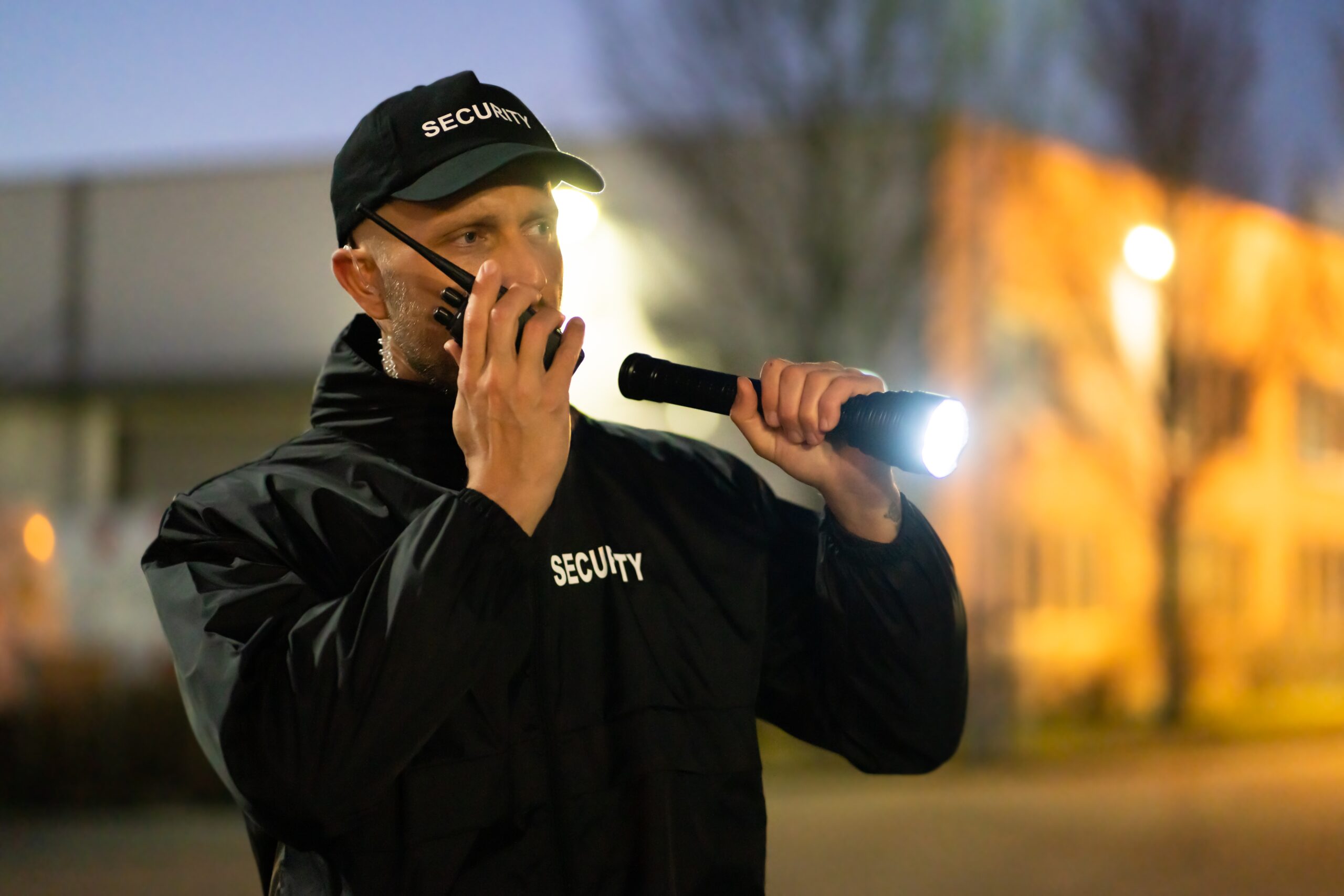No products in the basket.
Safety and security are paramount, especially in public spaces. One of the key figures ensuring this safety is the door supervisor. But what exactly is a door supervisor, and why are they so crucial? This blog will explore the role of a door supervisor, their responsibilities, and the skills required to excel in this profession.
What is a Door Supervisor
A door supervisor is a security professional responsible for maintaining safety and order in venues such as nightclubs, bars, and other entertainment establishments. They are often the first point of contact for patrons, making them essential in setting the tone for a safe and enjoyable experience. Unlike regular security guards, door supervisors have a more specialised role, often involving direct interaction with the public.

What Does a Door Supervisor Do?
Door supervisors have a wide range of responsibilities that go beyond just standing at the entrance. Here are some of the primary duties they perform:
- Access Control: One of the main tasks of a door supervisor is to control who enters and exits the venue. This involves checking identification to ensure patrons meet age requirements and are not carrying prohibited items.
- Conflict Resolution: Door supervisors are trained to handle conflicts that may arise within the venue. They use their skills to de-escalate situations and prevent them from turning into violent incidents.
- Customer Service: Although primarily focused on security, door supervisors also provide customer service. They greet patrons, answer questions, and help ensure everyone has a pleasant experience.
- Emergency Response: In case of emergencies, such as fires or medical incidents, door supervisors are responsible for coordinating evacuations and ensuring the safety of all patrons.
The Importance of Door Supervisors
The presence of door supervisors is important for several reasons. Firstly, they help maintain a safe environment, which is essential for the reputation of any venue. Patrons are more likely to return to a place where they feel secure. Additionally, door supervisors play a vital role in preventing illegal activities, such as underage drinking and drug use, which can have serious legal implications for venue owners.
Moreover, door supervisors contribute to the overall customer experience. By managing queues efficiently and handling disputes diplomatically, they ensure that patrons can enjoy their time without unnecessary interruptions. Thus, this balance of security and hospitality is what makes door supervisors indispensable.
Skills Required to Be a Successful Door Supervisor
To be an effective door supervisor, one must possess a unique set of skills. Here are some of the most important ones:
- Communication Skills: Good communication helps in resolving conflicts and providing excellent customer service. So, door supervisors must communicate clearly and effectively with patrons, colleagues, and law enforcement when necessary.
- Physical Fitness: The job can be physically demanding, requiring door supervisors to stand for long periods and sometimes intervene in physical altercations.
- Problem-Solving Abilities: Quick thinking and the ability to assess situations accurately are important for door supervisors. So they must make decisions on the spot to ensure safety and order.
- Observational Skills: Being able to notice suspicious behaviour or potential threats is a key aspect of the job. Therefore, door supervisors must remain vigilant at all times.
Training and Licencing
In many countries, door supervisors are required to undergo specific training and obtain a license before they can begin working. This training typically covers topics such as conflict management, emergency procedures, and legal responsibilities. For instance, in the UK, door supervisors must hold a Security Industry Authority (SIA) license, which ensures they are qualified to perform their duties safely and legally.
Challenges Faced by Door Supervisors
While the role is rewarding, door supervisors face several challenges. Dealing with intoxicated individuals can be difficult, and situations can quickly become volatile. Therefore, having calm behaviour and the ability to handle stress is essential. Additionally, door supervisors must stay updated on the latest security protocols and legal requirements, which can vary by location and venue type.
Conclusion
Door supervisors play a critical role in maintaining safety and order in public venues. Their responsibilities are diverse, ranging from access control to emergency response, and they require a unique set of skills to perform effectively. As the first point of contact for many patrons, door supervisors not only ensure security but also contribute significantly to the overall customer experience. Therefore, understanding what a door supervisor is and appreciating their importance is important for both venue owners and patrons alike.
By prioritising training and maintaining a high standard of professionalism, door supervisors continue to be an integral part of the hospitality and entertainment industries. So, whether you are a venue owner looking to hire or a patron enjoying a night out, recognising the value of door supervisors is essential for a safe and enjoyable experience.




